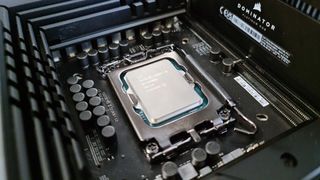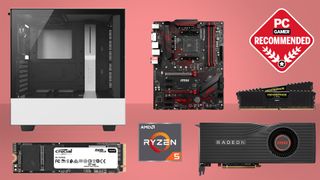Intel hit with billion dollar bill for CPU patent infringement
VLSI strikes again.

Intel has lost another lawsuit over CPU tech patent infringements with VSLI. This time around, the judgement is worth a cool $948.8 million and covers infringements contained in Intel's Cascade Lake and Skylake family CPUs.
It's unclear whether the judgement covers all CPUs based on the Skylake architecture, which were produced right up to and including Comet Lake of 2020, or if it applies only to the original 2015 Skylake generation.
VSLI is a patent-holding company ultimately owned by Softbank Group, the Japanese conglomerate that also has a controlling stake in ARM, the UK CPU designer that dominates smartphones, tablets and other low power devices.
Inevitably, Intel "strongly disagrees" with the decision taken by a federal jury in Texas to award nearly $1 billion to VSLI and claims the decision demonstrates that the U.S. patent system is in urgent need of reform. Intel says it will appeal the decision.

Best CPU for gaming: The top chips from Intel and AMD
Best gaming motherboard: The right boards
Best graphics card: Your perfect pixel-pusher awaits
Best SSD for gaming: Get into the game ahead of the rest
In March this year, another case involving Intel and VSLI also went in the latter's favour, costing Intel an even heftier $2.2 billion. Further VSLI-Intel trials are due to be litigated in US courts later this year.
In the world of high-tech patents these kinds of conflicts are, of course, relatively common. It's almost impossible to build a modern microprocessor without stepping on someone's toes. But as the old adage goes, a billion here, a billion there, pretty soon you're talking about real money. These decisions are rather adding up for Intel.
The biggest gaming news, reviews and hardware deals
Keep up to date with the most important stories and the best deals, as picked by the PC Gamer team.

Jeremy has been writing about technology and PCs since the 90nm Netburst era (Google it!) and enjoys nothing more than a serious dissertation on the finer points of monitor input lag and overshoot followed by a forensic examination of advanced lithography. Or maybe he just likes machines that go “ping!” He also has a thing for tennis and cars.
Most Popular






